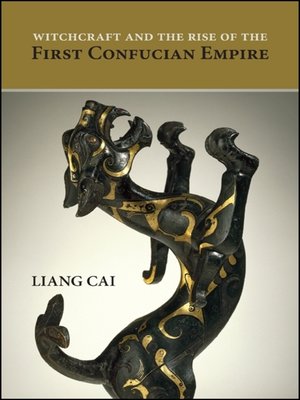Witchcraft and the Rise of the First Confucian Empire
ebook ∣ SUNY Series in Chinese Philosophy and Culture
By Liang Cai

Sign up to save your library
With an OverDrive account, you can save your favorite libraries for at-a-glance information about availability. Find out more about OverDrive accounts.
Find this title in Libby, the library reading app by OverDrive.



Search for a digital library with this title
Title found at these libraries:
| Library Name | Distance |
|---|---|
| Loading... |
Contests long-standing claims that Confucianism came to prominence under China's Emperor Wu.
Finalist for the 2015 Best First Book in the History of Religions presented by the American Academy of Religion
Winner of the 2014 Academic Award for Excellence presented by Chinese Historians in the United States
When did Confucianism become the reigning political ideology of imperial China? A pervasive narrative holds it was during the reign of Emperor Wu of the Han dynasty (141–87 BCE). In this book, Liang Cai maintains that such a date would have been too early and provides a new account of this transformation. A hidden narrative in Sima Qian's The Grand Scribe's Records (Shi ji) shows that Confucians were a powerless minority in the political realm of this period. Cai argues that the notorious witchcraft scandal of 91–87 BCE reshuffled the power structure of the Western Han bureaucracy and provided Confucians an opportune moment to seize power, evolve into a new elite class, and set the tenor of political discourse for centuries to come.







